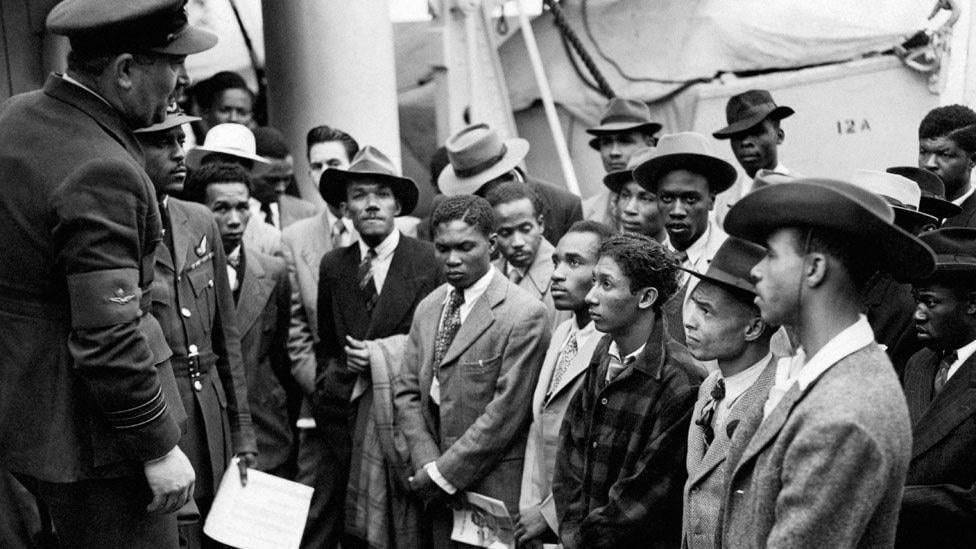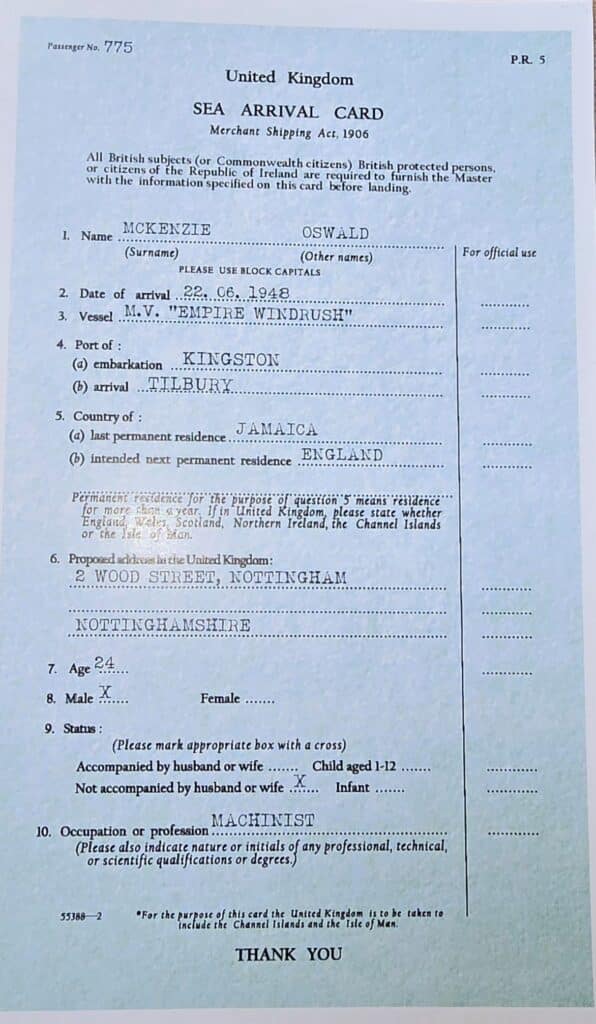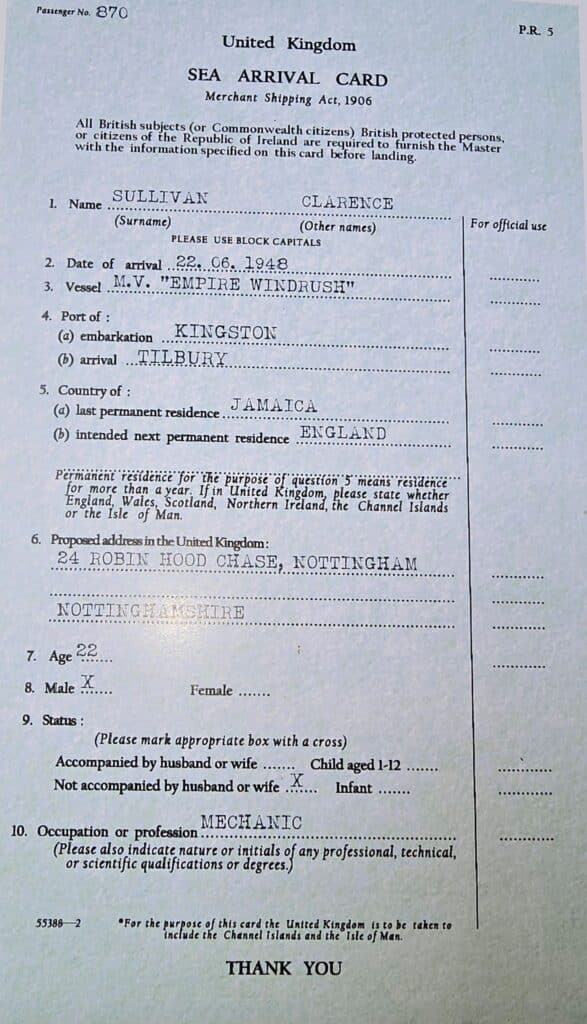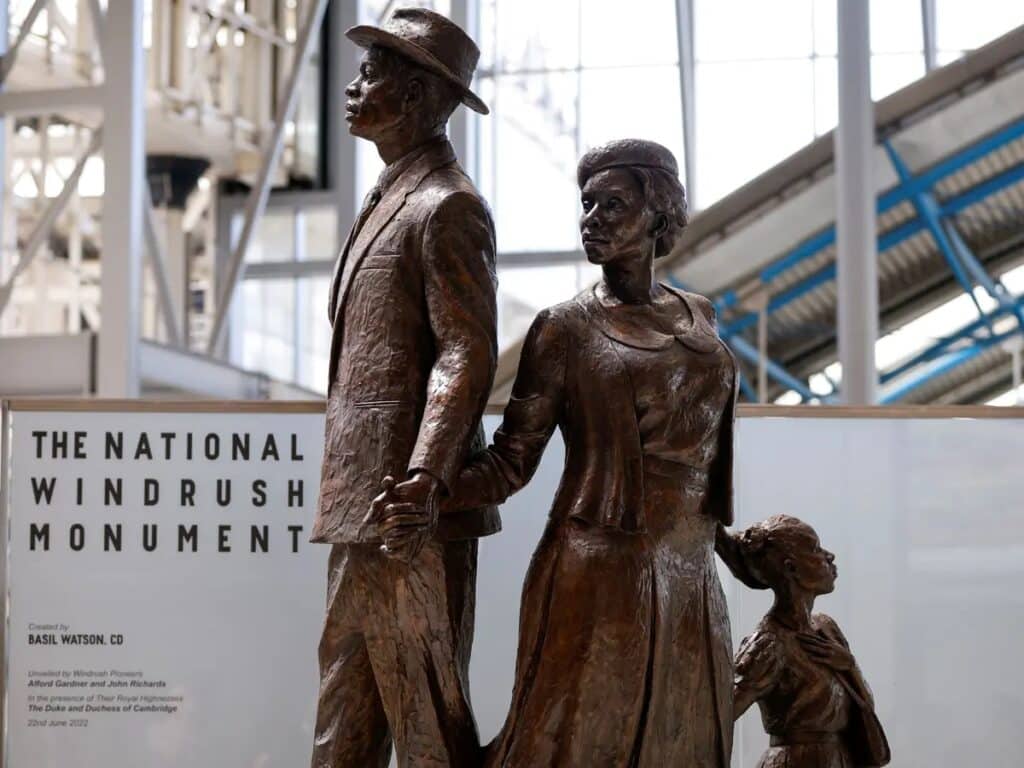
It is Tuesday June 22, 1948. The weather is friendly, welcoming and calm. Happy days.
Pangs of a rapturing excitement lingers in the air as the wind of satisfaction and gratification blows from east to the west as the generation of new crop of young males and females anticipate a better life.
A troopship named HTM Empire Windrush, which has just made a 30-day significant journey across the Atlantic from Jamaica arrives in Tilbury, Britain. Safe and secure.
This is the arrival of 1,000 passengers, who included young men and women, the first generation of Caribbean migrants in the UK, which is the initial step in the formation of a new identity: the ‘Black Briton.’

Among the 1,000 passengers, there is 24 year-old Jamaican from Kingston town, McKenzie Osward, a machinist and his compatriot, Sullivan Clarence, 22, a mechanic, also from Kingston.
They are both deployed to Nottingham. McKenzie Osward is going to live at 2 Wood Street while Sullivan is to going be domiciled at 24 Robin hood Chase.
These two are but just part of the people that settled in the Robinhood City and Nottingham, like many cities in Britain is part of the Windrush story.
Seventy-five years later, we are still fascinated to tell the story of Britain in the second half of the twentieth century through the eyes of the outsiders who became insiders.
Windrush is an essential record of this transformative era in British social history and so is Nottingham but remains a a poignant reminder of the passing of hard times.
After decades after the arrival of MV Windrush, many people faced injustice and suffered, but the wrong is being righted and those affected are being compensated.
The Home Office is handing out compensation to those who were affected by the Windrush Scandal in which many people were deported to their respective countries and Nottingham, as it was, and has always been is part of the story.

Always part of the story
It is, therefore, against this background that some notable charitable organisations plying their benevolent trade both in Nottingham and Nottinghamshire County have come together to sensitise the African and Asian communities about the Windrush compensation Scheme currently being run by the UK Home Office.
Two Nottingham based non-profit making organisations, Mojatu Foundation through its Pro-bono legal Centre and Angola Women Association UK are engaging African and Asian communities in the city and the county to enlighten them about the ongoing Home Office Windrush Compensation Scheme.
The two like-minded charity organisations are disseminating information to their respective catchment audiences on how those affected by the Windrush Scandal can get reparation from the Home Office.
The two charity organisations’ message is louder and clearer as per Home Office brief; “Those affected by the Windrush Scandal are eligible for a bumper pay-out of compensation.”
In interview Mojatu Foundation and Director Bishop Francis Waihenya said his organisation is honoured to be taking part in the Community Engagement programme of Windrush Compensation Scheme.
In interview Mojatu Foundation Director and Chief Executive Officer (CEO) Bishop Francis Waihenya said his organisation is honoured to be taking part in the Community Engagement programme of Windrush Compensation Scheme.

“As Mojatu Foundation, we are so honoured to be part of this important project and we are grateful to His Majesty’s government through the Home Office for the opportunity to serve the communities we serve in Nottingham and surrounding areas. “
Angola Women Association UK chairperson Ms. Paula Pontes said: “We are delighted to be part of this sensitisation programme to help people understand how they can apply for compensation and or get their immigration documentation in order.”
She added: At Angola Women Association UK, we support women from all kinds of backgrounds and we believe there are many a woman out there who needs help on this matter and this piece of detailed information will go a long way in helping them get the help they so need.”
Community Engagement Fund
On 20 September 2022 the Home Office launched a £150,000 Community Engagement Fund with an aim to provide support to charities, community or grassroots organisations to engage communities and raise awareness of priority Home Office policies and the support available.
The £500,000 Windrush Community Fund (WCF) was launched in December 2020 to support community and grassroots organisations to run outreach and promotional activity to raise awareness of the Windrush Scheme (Documentation) and Windrush Compensation Scheme.
Twenty-seven community organisations were awarded monies under the two phases of the Windrush Compensation Fund.
Phase one projects were completed by end of August 2022.
Phase one groups have reached over 865,470 individuals through their activities and events and supported over 2,520 individuals in a variety of ways including signposting to additional support, assisting with Windrush Compensation or Documentation Scheme applications, sharing knowledge and addressing misinformation about the Schemes or the role of the Home Office.
The Government continues to work closely with stakeholders to ensure anyone who should benefit from the Scheme applies.
Windrush Scheme for Documentation

On 16 April 2018, the Home Office established the Windrush Taskforce, now known as the Help Team, to ensure members of the Windrush generation could get the documentation they need to prove their right to be in the UK.
According to Home Office records, Over 15,700 people have been issued with documentation confirming their status or British citizenship.
Individuals from a wide range of nationalities have been granted documentation after applying to the Windrush Scheme from within the UK, including a wide range of Commonwealth countries.
Windrush Compensation Scheme
The Windrush Compensation Scheme was launched on April, 3rd 2019 to enable people who suffered losses because they could not show that they had had a right to live in the UK to claim compensation.
The statistics show that 59.2% of claims have had a final decision.
The total amount paid or offered to claimants through the scheme has increased to over £59.58 million and the sum of £51.02 million has been paid across 1,307 claims and a further £8.56 million has been offered, awaiting acceptance, or pending review.
Windrush Scheme for Documentation
On 16 April 2018, the Home Office established the Windrush Taskforce, now known as the Help Team, to ensure members of the Windrush generation could get the documentation they need to prove their right to be in the UK.
Over 15,700 people have been issued with documentation confirming their status or British citizenship.
Individuals from a wide range of nationalities have been granted documentation after applying to the Windrush Scheme from within the UK, including a wide range of Commonwealth countries.
How to claim
To claim compensation, You must apply by email or by post. The form and the guidance explain where you need to send your completed application.
Furthermore, there are separate forms and guidance for each kind of claim.
If you need help to claim
The Windrush help team can post a form to you – there’s usually a limit of 10 forms per person, help you work out if you’re eligible and give extra support to those who need it – for example, elderly or vulnerable claimants
However, if you are outside the UK, you can; call the help team or write them an email and request a call back or send an email and request an email reply.

You may be charged for making or receiving a call – check the exact cost with your phone network provider.
The Windrush help team can be contacted through the following email and telephone number:
windrushcompensationscheme@homeoffice.gov.uk
Telephone: 0800 678 1925
Monday to Friday, 9:00am to 5:00pm.




